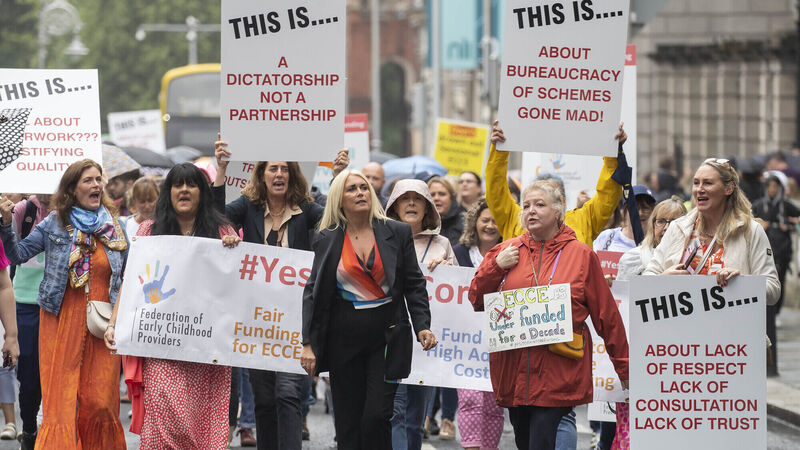Joyce Fegan: The 'march of the mummies' has begun

Elaine Dunne, (centre, wearing black suit) chair of The Federation of Early Childhood Providers during a protest outside the Dáil and a march to the Department of Children, Baggot Street on Wednesday calling for increases in funding. Picture: Colin Keegan, Collins Dublin
At the height of the media attention on the MeToo movement in 2017, there was one shrewd commentator who said it was all actually about labour rights: Safety in the workplace, dignity in the workplace, and equal pay in the workplace.
Right now, in Ireland, the UK, and America there are large public conversations taking place about childcare — its cost, creche closures, staff shortages, staff burnout, and mothers in the main retiring prematurely and involuntarily in order to alleviate this crisis in care.















